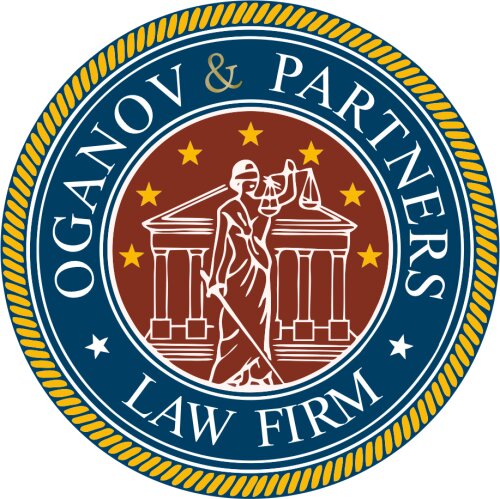Best Labor Law Lawyers in Glyfada
Share your needs with us, get contacted by law firms.
Free. Takes 2 min.
List of the best lawyers in Glyfada, Greece
About Labor Law in Glyfada, Greece
Labor Law in Glyfada, Greece, is governed by the Greek Labor Code and a framework of regulations enacted at both the national and local levels. This area of law focuses on the rights and responsibilities of employers and employees, covering matters such as employment contracts, working conditions, wages, holidays, workplace safety, dismissals, and dispute resolution. Glyfada, as a district within the greater Athens area, follows Greek national labor standards while also reflecting local employment trends and practices common in the region’s businesses and industries.
Why You May Need a Lawyer
Labor Law issues can be complex, involving specific procedures and strict timelines. People in Glyfada may require a lawyer for many reasons, including unjust dismissal, unpaid wages, workplace discrimination, harassment claims, drafting or reviewing employment contracts, health and safety violations, and collective bargaining matters. Additionally, navigating interactions with public bodies, such as the Labor Inspectorate or Social Insurance agencies, often requires experienced legal guidance. Whether you are an employee seeking to enforce your rights or an employer wishing to comply with regulations, a lawyer can assist in protecting your interests and achieving resolution.
Local Laws Overview
Greek Labor Law applies uniformly across the country, including Glyfada, but some aspects are more locally significant. Key elements include:
- Employment Contracts: These may be oral or written, but written contracts are strongly recommended. Key terms such as salary, working hours, and duties should be clear.
- Minimum Wage: The national minimum wage is mandated by legislation and updated periodically.
- Working Hours and Overtime: Standard working hours are set by law, with additional remuneration for overtime work. Labor Inspectorate approvals may be required for certain overtime circumstances.
- Termination: Employee dismissals must follow strict legal procedures, including proper notice and, in most cases, payment of severance.
- Health and Safety: Employers must adhere to regulations ensuring a safe workplace environment. Non-compliance can lead to complaints and inspections.
- Dispute Resolution: Most disputes are first addressed through the Labor Inspectorate or local mediation before they reach civil courts.
- Social Security: Employees must be registered with the national social security system (EFKA), and contributions must be made by employers.
Frequently Asked Questions
What rights do I have as an employee in Glyfada?
Employees have the right to fair wages, safe working conditions, paid leave, proper notice before dismissal, and social insurance coverage, as established by Greek law.
Is a written employment contract required?
While not always mandatory, a written contract is highly recommended to clearly define employment terms and protect both parties in case of dispute.
Am I entitled to severance pay if I am dismissed?
Most employees are entitled to severance pay upon dismissal, provided they have completed the required minimum period of service and were not dismissed for a serious breach of duty.
What should I do if my employer fails to pay my salary?
You should document any unpaid wages and seek advice from a legal professional or the Labor Inspectorate, who can help mediate or pursue your claim.
How many hours am I legally allowed to work each week?
The standard work week in Greece is 40 hours. Overtime is permitted within limits and must be compensated according to legal rates.
What recourse do I have for workplace harassment or discrimination?
You should keep detailed records and seek advice from a lawyer or file a complaint with the Labor Inspectorate or the Greek Ombudsman.
Are employers in Glyfada required to ensure health and safety?
Yes, employers must provide a safe working environment and comply with national health and safety legislation. You can report unsafe conditions to the Labor Inspectorate.
How can I resolve a dispute with my employer?
Most disputes are handled initially through the Labor Inspectorate’s mediation services. If no agreement is reached, cases can proceed to civil court.
As an employer, how can I ensure compliance with Labor Law?
Employers should consult with legal professionals to review contracts, policies, workplace practices, and ensure registration of employees with social security agencies.
What happens if I work without being registered with social security?
Working without proper registration exposes both employee and employer to significant legal and financial penalties, such as fines and liabilities for unpaid contributions.
Additional Resources
For those in Glyfada seeking more information or assistance, the following resources can be helpful:
- Labor Inspectorate (SEPE): Governmental authority handling labor law complaints, inspections, and dispute resolution.
- Greek Manpower Employment Organization (OAED): Provides employment services, unemployment benefits, and training.
- EFKA (Unified Social Security Fund): Manages social security registrations and contributions.
- Greek Ombudsman: Independent authority for cases involving discrimination or maladministration in the workplace.
- Local Bar Associations: For referrals to labor law specialists in Glyfada and the greater Athens area.
Next Steps
If you believe your workplace rights have been violated or you need advice regarding employment matters in Glyfada, take the following steps:
- Gather all relevant documents, such as contracts, payslips, and correspondence.
- Contact a qualified labor law lawyer operating in the Glyfada area.
- Visit the Labor Inspectorate for official guidance or to file a complaint.
- Seek mediation services to try and resolve disputes before court proceedings.
- If necessary, be prepared to engage in formal legal proceedings with your lawyer’s support.
Professional legal assistance can offer crucial support in understanding your position, confirming your rights, and navigating the local labor law framework effectively.
Lawzana helps you find the best lawyers and law firms in Glyfada through a curated and pre-screened list of qualified legal professionals. Our platform offers rankings and detailed profiles of attorneys and law firms, allowing you to compare based on practice areas, including Labor Law, experience, and client feedback.
Each profile includes a description of the firm's areas of practice, client reviews, team members and partners, year of establishment, spoken languages, office locations, contact information, social media presence, and any published articles or resources. Most firms on our platform speak English and are experienced in both local and international legal matters.
Get a quote from top-rated law firms in Glyfada, Greece — quickly, securely, and without unnecessary hassle.
Disclaimer:
The information provided on this page is for general informational purposes only and does not constitute legal advice. While we strive to ensure the accuracy and relevance of the content, legal information may change over time, and interpretations of the law can vary. You should always consult with a qualified legal professional for advice specific to your situation.
We disclaim all liability for actions taken or not taken based on the content of this page. If you believe any information is incorrect or outdated, please contact us, and we will review and update it where appropriate.









